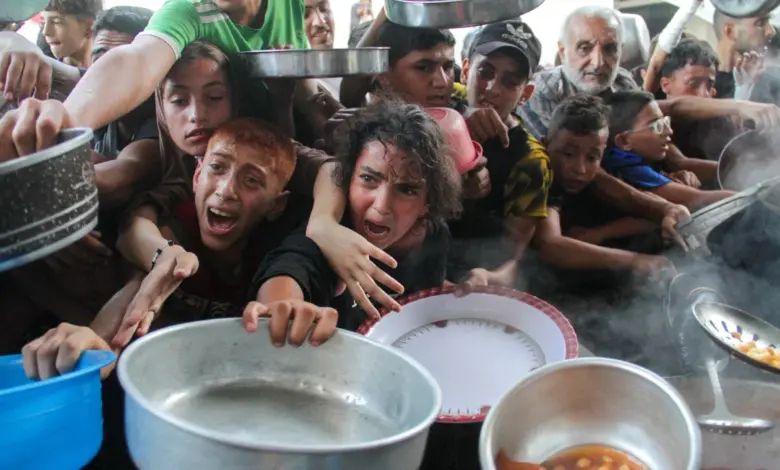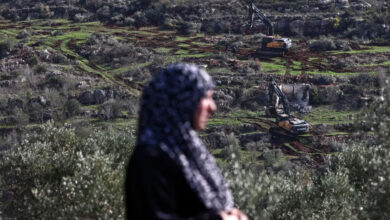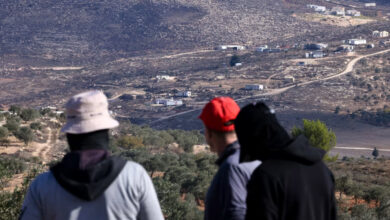
The spokesperson for the United Nations Relief and Works Agency for Palestine Refugees (UNRWA), Louise Wateridge, described the situation in the northern Gaza strip as “catastrophic,” a statement echoed by the UN Assistant Secretary-General for Human Rights, Ilze Brands Kehris.
Wateridge, who was speaking to reporters in Geneva via video from central Gaza on Tuesday evening, said that October witnessed 64 attacks on schools that had been turned into shelters, at a rate of two attacks per day, which led to the deaths of many people – including children.
She pointed to the impending famine in northern Gaza and the threat of the approaching winter, saying that shelters were completely inadequate to protect people from the elements.
“People are using whatever they can find, whether it’s curtains, blankets, sheets, to shelter themselves, but none of it is waterproof, and people are sleeping on the floor, and the shelters are surrounded by sewage water, and when it rains in Gaza we are very concerned about the situation of up to 500,000 people living in areas prone to flooding, and they are sleeping on the floor and they have no shelter to go to,” a statement on the UN News website reads.
‘There is no safe place in Gaza’
Wateridge spoke about her visit to Gaza City last week, and said that one of the UNRWA schools she visited is now sheltering displaced people from Jabalia, the besieged area in northern Gaza.
These people are being forced to flee for their lives to shelter in a school that could collapse at any moment, she warned.
She said the school had been severely damaged and destroyed by shelling during the ongoing military operations, but families were still staying there because there was nowhere else to go, noting that this situation was repeated across Gaza.
The UNRWA spokesperson explained that aid flows into Gaza Strip had reached their lowest levels in months, and spoke of the ongoing shelling and killing of civilians.
There is no safe place in Gaza, she said, adding: “We now have an update from the Integrated Food Security Phase Classification, which says that famine is imminent if not already in the besieged north, and while we receive testimonies from people on the ground begging for a piece of bread or water, the UN is being denied access to the area.”
Wateridge explained that humanitarian access to the besieged areas in the north has been extremely limited for more than a month.
Up to 1.7 million people across Gaza (80 percent of the population) did not receive their monthly food rations in October, she warned, noting that acute malnutrition has increased by 10 times what it was before the war.




